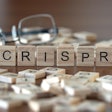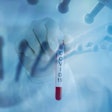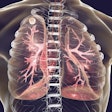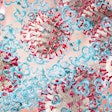Dear LabPulse.com member,
The Centers for Disease Control and Prevention loosened COVID-19 guidelines this past week, saying it recognizes that COVID-19 is here to stay, but "high levels of population immunity due to vaccination and previous infection, and the many tools that we have available to protect people from severe illness and death, have put us in a different place."
While welcomed by many, the policy change can be expected to further reduce U.S. COVID-19 testing demand. Children returning to school and unvaccinated students who are exposed to the virus will no longer need to test frequently to stay in the classroom.
Meanwhile, the U.S. Food and Drug Administration (FDA) has issued a new recommendation that, if followed by individuals needing testing, could offset some of the ongoing decline in U.S. demand.
The FDA recommends that asymptomatic individuals take at least three COVID-19 antigen tests, each spaced 48 hours after the previous test, to reduce the likelihood of missing an infection; individuals who have COVID-19 symptoms should take at least two tests, 48 hours apart.
Along with these developments having the potential to impact the demand for testing, Seegene this past week became the latest large diagnostics test provider to report a year-over-year decline in revenues. Specifically, the firm said that an 11% drop for the first half of 2022 was due to a reduction in PCR testing volume. However, within its overall test portfolio, sales of non-COVID products rose 30% year-over-year.
With the ongoing focus on gaining a better understanding of the body's immune response to SARS-CoV-2, Roche announced the launch of its Elecsys IGRA SARS-CoV-2, which detects T-cell response to the virus and has the potential to indicate whether an individual has immunity protection from either past infection or vaccination.
According to the CDC, COVID-19 was the third leading cause of death in 2021 after heart disease and cancer. More than 30,000 cancer deaths in 2021 were from primary liver cancer; hepatocellular carcinoma (HCC) accounts for 80% to 85% of primary liver cancers.
As a result, research is ongoing to develop tests for the early detection of HCC, and according to some researchers, the use of extracellular vesicles (EVs) is one way that this might be possible.
EVs are released by normal cells but are released to a greater extent by tumor cells and cells within a tumor microenvironment. Detection could be done rapidly and affordably with high sensitivity in at-risk patients who have liver cirrhosis, according to researchers at the University of California at Los Angeles.
Meanwhile, researchers led by Imperial College London believe that a CRISPR-based tool they've developed will be particularly applicable for surgeries performed by general practitioners in their offices, as well as in developing countries with resource-limited clinics. The test they are developing, dubbed CrisprZyme, can be used at room temperatures and is comparatively easy to use, possibly leading to quicker and easier diagnoses.
Separately, according to the results of a study published in Lancet Neurology, measuring specific biomarkers in blood may enable more accurate assessment of a patient's prognosis for traumatic brain injury (TBI).
Researchers conducting the Transforming Research and Clinical Knowledge in TBI (TRACK-TBI) study have examined levels of glial fibrillary acidic protein (GFAP) and ubiquitin carboxy-terminal hydrolase L1 (UCH-L1) -- proteins found in glial cells and neurons, respectively -- in nearly 1,700 patients with TBI. They used two Abbott concussion tests: the i-Stat TBI Plasma test, an FDA-cleared rapid test that runs on a portable analyzer, and the firm's core laboratory Architect instrument.
In other news this week, Becton Dickinson (BD) announced it will market and sell Accelerate Diagnostics' rapid testing solutions for antibiotic resistance and susceptibility. Under a worldwide commercial collaboration agreement, BD will offer the Accelerate Pheno system and Accelerate Arc module and associated test kits through BD's global sales network in territories where the products have regulatory approval or registration.
As reports have surfaced about the U.S. struggle to rollout monkeypox vaccines, Qiagen has pressed ahead with the launch of a syndromic test. Its research-use-only test differentiates between monkeypox and five other pathogens that cause similar symptoms.



















